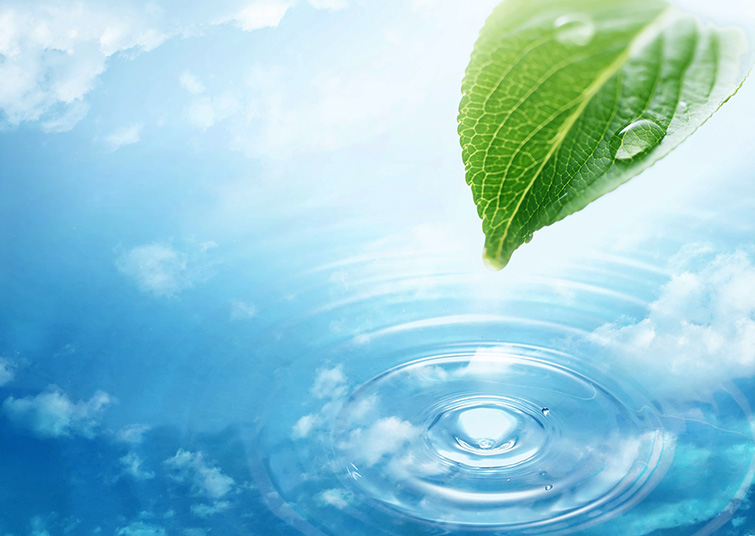How to Use Less Chlorine in Your Pool
May 02, 2017 at 03:50 PM

If you’re sensitive to the chlorine in swimming pools, fear not, there are options that can help minimize the amount of chlorine needed and allow you to enjoy your time in the pool.
Chlorine is one of the most popular ways to sanitize your swimming pool, but it’s not the only option. Chlorine works by bonding with organic matter, such as dead skin cells, sweat and urine, to create chloramines. It’s actually the chloramines, not the chlorine, that creates the infamous “pool smell” and irritates the skin and eyes. The stronger the smell, the more chlorine is actually required in the pool. A “shock” or oxidizer is needed to remove chloramines and bring the chlorine back to level.
However, there are ways to keep the pool clean without needing to store buckets of chlorine tablets or bottles of chlorine bleach. Here are a few options to maintaining your swimming pool’s sanitation with less chlorine.
Saltwater chlorine generator. Rather than adding chlorine directly to the pool, this method uses a generator that produces chlorine through a chemical reactive process known as electrolysis. It takes dissolved salt in the water and produces hypochlorous acid and sodium hypochlorite, which are common sanitizing products used in swimming pools. The result from a salt water generator, however, is softer, silkier water. Not only that, there’s always chlorine being generated, reducing or eliminating the need to shock the pool with extra chlorine. Because salt generators don’t come with other chemicals such as algaecides and pH balancers the way a chlorine tablet might, those items will need to be added to maintain water balance.
While a saltwater chlorine (SWC) generator may initially have a higher upfront cost, its overall general maintenance may likely cost less than traditional chemicals. However, regular maintenance and upkeep of pool chemistry and equipment is necessary to avoid damage caused by salt, which is corrosive. Other items, such as metal ladders, lights, and hardware, as well as pool tile, should also be switched to a salt-friendly material to avoid corrosion.
Ozone generator. A great supplement to chlorine sanitization is ozone. It’s a near-odorless, colorless, tasteless gas that can clean water faster than chlorine and does not irritate the skin or eyes. Unlike chlorine, ozone also leaves no byproducts other than oxygen. It also does not corrode any materials nor affect the pH levels. However, ozone does not leave any residual in the pool, so the pool still needs chlorine or a salt water system to guarantee constant sanitization. Ozone generators also still require filtration, as swimming pools still collect debris and algae. Ozone does help reduce the need to shock the pool, if at all, especially if used in conjunction with a clarifier, algaecide, or enzymes.
Ozone costs more up-front, and while it may not necessarily save money on sanitation over time, it could help ensure the cleanest, purest swimming water in your pool and reduce irritation and risk of diseases. It will also reduce the need for more chlorine in the pool.
Bromine. Bromine is an alternative to chlorine, and is particularly effective in indoor poolnarures. Bromine can be more potent and stable than chlorine, and does not add cyanuric acid or calcium to the pool either. Its byproduct, bromamine, is actually still an effective sanitizer unlike its chlorine counterpart, chloramine. With indoor situations, chloramines not only create poor indoor air quality, but can also cause damage to building structures. Chlorine treatment also requires regular shocking to kill off the chloramines, whereas bromine treatment does not require the same level. Not only that, shocking a pool can reactivate bromine. Bromine also performs very well in higher temperatures, which makes it a popular choice for hot tubs.
Bromine in an outdoor pool, however, is not as strong of a contender because it is easily degraded by the sun’s ultraviolet rays. Yet it is still possible to maintain bromine outside with proper maintenance and operator attention.
If you have any questions about ways to lessen chlorine in your pool, consult with a pool technician first. A technician can examine the size of your pool and materials to determine which method would be best suited for your needs.